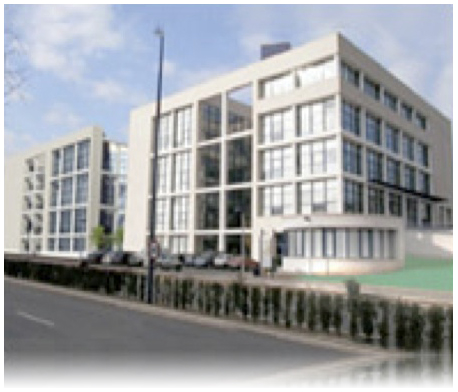CRDM-Guy BrousseauResources
The documentary and bibliographic resources housed by CRDM are, initially, those produced by COREM, and the new productions generated from research based on these materials are being added.
 This observational device (COREM) enabled the storage of a large amount of reliable information systematically produced in the observations, thanks to video recordings and the presence of non-participating observers. From the perspective of the Theory of Situations, researchers and therefore also observers do not question the students at the time of the class (eventually interviews can be conducted in other areas to analyze a case) as the object of study are the situations themselves, the way they report on the skills and knowledge that come into play and students mobilize. So, is not the actor in the abstract, but in the concrete situation, who is the subject of study, in the potentiality the teacher can offer to students to develop their mathematical activity being an actor in this teaching institution.
This observational device (COREM) enabled the storage of a large amount of reliable information systematically produced in the observations, thanks to video recordings and the presence of non-participating observers. From the perspective of the Theory of Situations, researchers and therefore also observers do not question the students at the time of the class (eventually interviews can be conducted in other areas to analyze a case) as the object of study are the situations themselves, the way they report on the skills and knowledge that come into play and students mobilize. So, is not the actor in the abstract, but in the concrete situation, who is the subject of study, in the potentiality the teacher can offer to students to develop their mathematical activity being an actor in this teaching institution.
The observed mathematical contents have covered almost all the elementary school curriculum, illustrated by original and different situations a-didactical, which cover almost all didactical situations of the teaching and learning of those contents. Introduction to logic and reasoning (appointment of object, classification, ordering, etc.), to enumeration, to natural numbers and measures and their elementary operations, rationals and decimals: rational measures, rational and decimal topology decimal and approximation, fractions and rational homotheties, different measures (several orders of magnitude), the domain of space and geometric notion, etc. Besides, other subjects related to the Theory of Situations were studied.
The availability of theses observational resources may contribute to the formation of new generations of researchers, the further analysis of theoretical aspects with regard to the spread and teaching of Mathematics.
As a summary, and using words of G. Brousseau, the importance of COREM resources lies on:
 This observational device (COREM) enabled the storage of a large amount of reliable information systematically produced in the observations, thanks to video recordings and the presence of non-participating observers. From the perspective of the Theory of Situations, researchers and therefore also observers do not question the students at the time of the class (eventually interviews can be conducted in other areas to analyze a case) as the object of study are the situations themselves, the way they report on the skills and knowledge that come into play and students mobilize. So, is not the actor in the abstract, but in the concrete situation, who is the subject of study, in the potentiality the teacher can offer to students to develop their mathematical activity being an actor in this teaching institution.
This observational device (COREM) enabled the storage of a large amount of reliable information systematically produced in the observations, thanks to video recordings and the presence of non-participating observers. From the perspective of the Theory of Situations, researchers and therefore also observers do not question the students at the time of the class (eventually interviews can be conducted in other areas to analyze a case) as the object of study are the situations themselves, the way they report on the skills and knowledge that come into play and students mobilize. So, is not the actor in the abstract, but in the concrete situation, who is the subject of study, in the potentiality the teacher can offer to students to develop their mathematical activity being an actor in this teaching institution.The observed mathematical contents have covered almost all the elementary school curriculum, illustrated by original and different situations a-didactical, which cover almost all didactical situations of the teaching and learning of those contents. Introduction to logic and reasoning (appointment of object, classification, ordering, etc.), to enumeration, to natural numbers and measures and their elementary operations, rationals and decimals: rational measures, rational and decimal topology decimal and approximation, fractions and rational homotheties, different measures (several orders of magnitude), the domain of space and geometric notion, etc. Besides, other subjects related to the Theory of Situations were studied.
The availability of theses observational resources may contribute to the formation of new generations of researchers, the further analysis of theoretical aspects with regard to the spread and teaching of Mathematics.
As a summary, and using words of G. Brousseau, the importance of COREM resources lies on:
- These observational documents form a unique corpus and an endless source of reflections and ideas for the research on the teaching of mathematics at school level.
- They keep the footprint of the creation of the main concepts of the Theory of Situations and of the main steps of the emergency of Didactics in the XX century.
